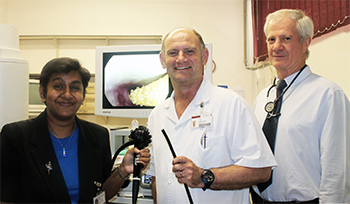Latest News Archive
Please select Category, Year, and then Month to display items
23 September 2020
|
Story Nitha Ramnath
|
Photo Supplied
 UFS students will be performing at the virtual ICDF on 24 September 2020.
UFS students will be performing at the virtual ICDF on 24 September 2020.
On 24 September 2020, South Africa will be celebrating Heritage Day. For the 25th anniversary of this celebration, South Africans are encouraged to celebrate their culture and the diversity of their beliefs and traditions in the wider context of a country that belongs to all its people. Dr Chitja Twala, Vice-Dean: Faculty of the Humanities at the UFS, says: “The importance of the day is that we must celebrate who we are and learn from each other.” The University of the Free
State (UFS) has a long tradition of commemorating Heritage Day and the ideas underpinning it. One way in which the UFS celebrates and recognises the tapestry of diverse cultures represented on its campuses is through its International Cultural Diversity
Festival hosted by the Office for International Affairs. The purpose of the event is to highlight on Heritage Day that international cultural diversity is a central tenet of the UFS community.
Pursuant to the tremendous challenges caused by the COVID-19 pandemic globally, the International Cultural Diversity Festival will this year be celebrated in a virtual format. Even during this uncertain time, it is important to find time to celebrate
our uniqueness and to appreciate one another’s heritage and culture in the spirit of our humanity.
Date: 24 September 2020
Time: 10:00
No registration is required!
For the 2020 Heritage Month celebrations, let us share elements about ourselves that make us proud of who we are! The diverse contributions to the 2020 virtual International Cultural Diversity Festival activities will highlight the university’s commitment towards creating a diverse, challenging intellectual environment. As a research-led university, the UFS strives to provide an environment in which new ideas are incubated and debated, contributing to its transformation process and African unity.
For more information contact Bulelwa Moikwatlhai on MaloB@ufs.ac.za
Gastroenterology Unit works to bring a transformative impact to healthcare
2016-11-21

Dr Rita Nathan, Acting CEO of Universitas Hospital,
Prof Willem Kruger, Acting Head of the
School of Medicine, and Prof Jan van Zyl,
Head of Department of Internal Medicine.
Photo: Nonsindiso Qwabe
The departments of Surgery and Internal Medicine at the University of Free State launched the newly upgraded Gastroenterology Unit of the Universitas Academic Hospital on 8 November 2016. Realising the need to provide state-of-the-art equipment that caters for various health needs, the unit has acquired new pieces of equipment worth R7 million. Through the equipment, a move towards the digital revolution, the unit hopes to bring about a transformative impact on healthcare service delivery in central South Africa and its surrounds.
Upgraded unit will make a difference on burden of diseases
Dr Rita Nathan, Acting CEO of the Universitas Hospital, said the increase in the number of scopes, and the improvement in technology, will facilitate improved service delivery to the community of the Free State and beyond. “This upgrade will enable the unit to make a tremendous dent in the burden of diseases in the communities we serve.”
Unit a unique feature in central South Africa
Serving a population from the Free State, Northern Cape, Eastern Cape and Lesotho; the growing demand of health services has led to an increase in the number of patients treated by the unit. This unit is unique in central South Africa as the only one providing endoscopic intervention for cases like gastrointestinal bleeding. It is also the only 24-hour gastroscopic service available in the state sector.
Improved service delivery linked to enhanced training platforms
Prof Willem Kruger, acting head of the School of Medicine, said that the upgrading of equipment will have an immense impact on not only service delivery, but also on training platforms in the latest technologies. “It important, as a university, that our doctors have the latest technology at their disposal to facilitate training. If training improves, service delivery improves. The two on inextricably linked.” he said.